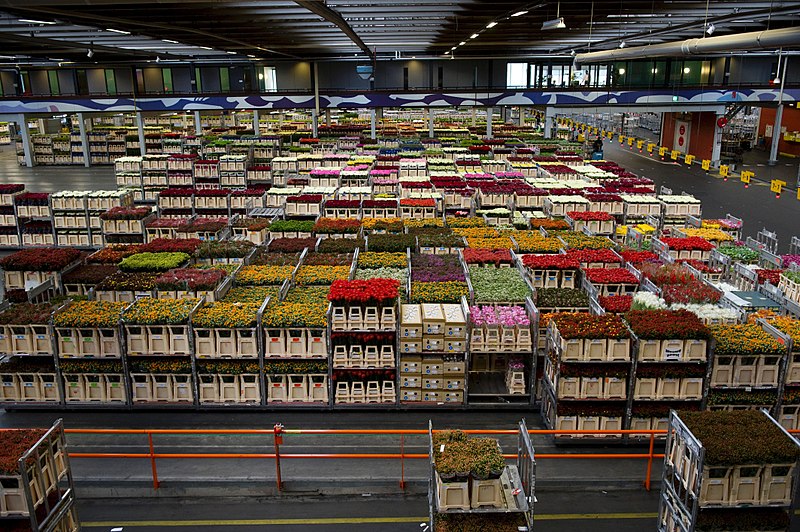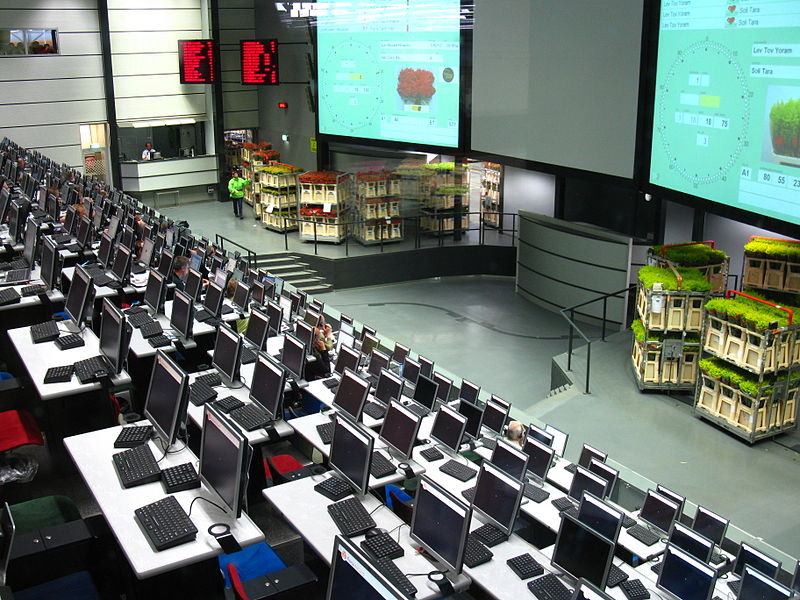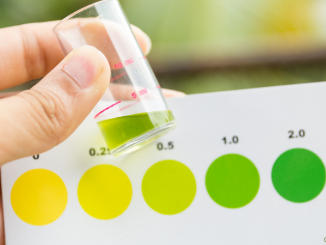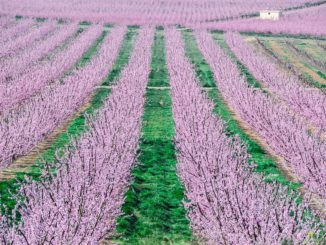
Covid19 has seen extraordinary measures to keep sectors of the economy afloat. In some cases, however there are winners and losers when money moves around – and consequences for producers other EU member states trying to compete with massive bailouts. Igor Olech has more.
A massive subsidy has been granted to flower and vegetable producers in the Netherlands. Executive Vice President of European Commission, Margrethe Vestager, said that the subsidy will help Dutch floricultural, horticulture (600 mn EUR) and potato (50 mn EUR) producers in the time of the crisis caused by the coronavirus. What is surprising however, is that the scheme has been planned under the European Agricultural Fund for Rural Development and, consequently, Pillar II will receive 325 mn EUR less in both years 2022 and 2023. The scheme will cover up to 70% of the revenue loss to floricultural and horticulture industries, and up to 44% of the revenue loss in potato industry. “The Commission therefore concluded that the scheme is in line with EU State aid rules”, states the information on the website of the European Commission. How is this?
The scheme is to be implemented according to the Article 107 (ex Article 87 TEC) or the Consolidated version of the Treaty on the Functioning of the European Union, which says that the aid may be provided in case of compatibility with the internal market. As arguments are the weapons to be used in the EU politics, let us try to analyze the restrictions and requirements which particular industries within EU states have to fulfil to acquire this grant, and see if potential justifications hold water.
Article 107 – Make or Break

(a) aid to promote the economic development of areas where the standard of living is abnormally low or where there is serious underemployment, and of the regions referred to in Article 349, in view of their structural, economic and social situation;
Rabobank’s analysis from 2016 shows, that Netherlands was still the unchallenged floriculture producer, and by no means it could be considered and a sector which is underdeveloped. Indeed, its global share has shrunk, but even the second country on the podium – Colombia – had almost three times lower market share on the global market. Netherlands is also the home for the largest flower market in the world – in Aalsmeer – which Forbes called in one of its articles “Holland’s Wall Street for flowers“.
Verdict: The case for the underdevelopment definitely does not apply here.
(b) aid to promote the execution of an important project of common European interest or to remedy a serious disturbance in the economy of a Member State;
Looking at the first part of the sentence, it can be immediately rejected, as the support applies not to “common European interest”, but to the interest of a particular member state. It could be justified that the support is to “remedy a serious disturbance in the economy of a Member State” – but applying the logic of the Commission (see: Tables in the European Economic Forecast in Spring 2020), Netherlands is not even among the Member States which will be the most affected by the coronavirus (within the euro area, the average GDP loss due to the coronavirus is forecasted at -7,7%, while Netherlands is forecasted at -6,8%). The countries which are to be the most affected are actually Spain (-9,4%), Italy (-9,5%) and Greece (-9,7%).
Verdict: This point eventually could apply.
(c) aid to facilitate the development of certain economic activities or of certain economic areas, where such aid does not adversely affect trading conditions to an extent contrary to the common interest;
Dutch floriculture doubly requires an aid aimed at the development, while it cannot be said that such help will not “adversely affect trading conditions to an extent to the common interest”.
Verdict: Clearly impacts competition in the Union.
(d) aid to promote culture and heritage conservation where such aid does not affect trading conditions and competition in the Union to an extent that is contrary to the common interest;
European Commission could try to stretch the justification as the support of the Dutch culture and heritage, as flower industry there has hundreds of years, but again – the dominant role of Netherlands in the global flower production is not yet threatened.
Verdict -mixed; yes its a culturally important sector, but Netherlands remains dominant globally.
(e) such other categories of aid as may be specified by decision of the Council on a proposal from the Commission.
The vagueness of the last point is what can be always the “argument of the last resort” here for the EC. Such judicial loopholes give powerful lobbies possibility to influence the decision-makers in their favor, and can answer the question how possibly CAP could lose at the expense of the particular industry of a particular member state. It also means, that ecological agriculture lobby is not able to create similar pressures in its favor in the critical time (but it has to be mentioned, that European Commission writes, that “[t]here was no consultation of external stakeholders. However, the proposal follows consultations with Member States and Members of the European Parliament over recent weeks”, therefore the pressure for the support may have come as a Dutch state initiative).
Verdict: this is a makey-uppy opt-out for states to ignore the EU’s rules – which is what’s happening in this case.
Conclusion
While the reasons for such an aid are vague and plenty, therefore they could always somehow fit into the justification, the vast majority of these justifications do not really apply.
There is no doubt that currently the market for non-essential goods, such as flowers, is in trouble, but the situation displays more of a “too big to fail” 2008 attitude. Surely horticulture is one of the most affected industries due to the coronavirus outbreak, yet taking a look at the Dutch flower industry, it can be said that here the choice is analogical to the bailout of banks instead the bailout of the consumers.
According to Forbes, Dutch flower producers experienced 80% loss of income, but even then we see that current support program for agriculture disregards the particularity of the ecological farms, and offers very general support to food industry: 200 mn EUR will be channeled for loans and guarantees, 800 mn EUR to food processors (who already quite often have the upper hand, in the relation to farmers) and marketing companies, and up to 120 thousand EUR per farm.
The only category which could vaguely be assigned as the Pillar II measures would be the emergency assistance to the rural development funds, which offers up to 5000 EUR per farmer and up to 50 thousand EUR per small company. Still, this falls more under the category of the general multifunctionality of the Pillar II, rather than support to the ecological farming in particular.
More on the Netherlands
Rural Dialogues | Agroecology and a Living Countryside in the Netherlands
Coping with Covid19 – Tensions in Farming, Trade and the EU Institutions
More on Covid19
Effects of Coronavirus on Agricultural Production – a First Approximation
Effects of Coronavirus on Agricultural Production – a First Approximation (part 2)
Coping with Covid19 – Supply Chains and the Butterfly Effect
Framing Farming – Nationalism, Food Security and Food Sovereignty
Coping with Covid19 – the Open Food Network and the New Digital Order(s)





